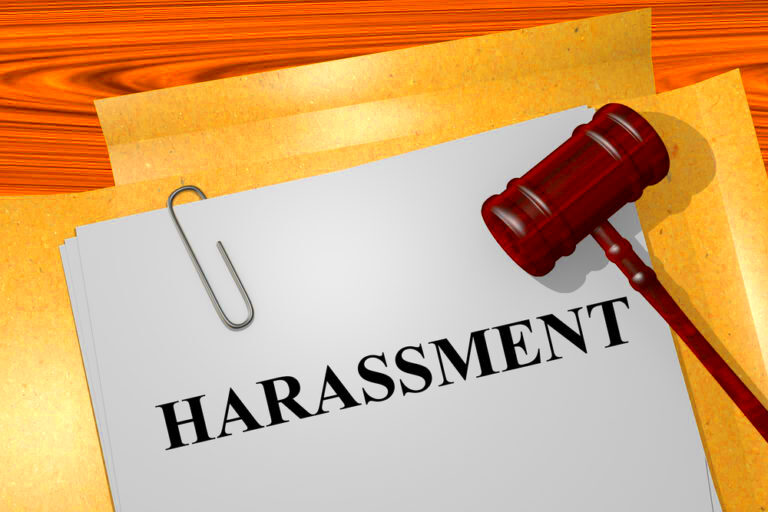Key Legal Requirements of Massachusetts Workplace Harassment Law
Workplace harassment is a serious issue that can affect employees’ well-being and productivity. In Massachusetts, the law aims to protect workers from harassment, ensuring they can work in an environment free from intimidation and hostility. This law is essential for fostering a safe workplace where all employees can thrive. Let’s delve into what this law entails, including its definitions, types of harassment, and what it means for both employers and employees.
Definition of Workplace Harassment

Workplace harassment refers to any unwelcome behavior that creates a hostile or intimidating work environment. This can include verbal, physical, or visual conduct. The key point is that the behavior must be severe or pervasive enough to alter the conditions of employment. The Massachusetts law emphasizes that harassment can occur between colleagues, supervisors, or even clients.
To help clarify, here are some characteristics of workplace harassment:
- Unwelcome Conduct: The behavior must be unwanted by the recipient.
- Based on Protected Characteristics: Harassment can stem from race, gender, sexual orientation, religion, or disability.
- Impact on Work Environment: The conduct must interfere with the victim’s ability to perform their job.
Types of Harassment Covered by the Law

Massachusetts law covers several types of harassment that employees may face in the workplace. Understanding these categories can help individuals identify when they are experiencing harassment and how to respond. The primary types include:
- Verbal Harassment: This includes offensive jokes, slurs, and name-calling.
- Physical Harassment: Unwanted touching, blocking someone’s path, or any physical intimidation.
- Visual Harassment: Displaying offensive images, posters, or sending inappropriate emails.
- Sexual Harassment: This can include unwelcome sexual advances, requests for sexual favors, and other verbal or physical conduct of a sexual nature.
By recognizing these types of harassment, employees and employers can better address and prevent such behaviors in the workplace.
Employer Responsibilities in Preventing Harassment
Employers play a crucial role in creating a safe and respectful workplace. Under Massachusetts law, they have specific responsibilities to prevent harassment and address it effectively if it occurs. It’s not just about having policies in place; employers must actively promote a culture of respect and inclusivity. Here are some key responsibilities that employers must uphold:
- Developing a Clear Anti-Harassment Policy: Employers should establish a comprehensive policy outlining what constitutes harassment, the procedures for reporting it, and the consequences for violating the policy.
- Training Employees: Regular training sessions should be conducted to educate employees about harassment, the importance of a respectful workplace, and how to recognize and report harassment.
- Implementing Reporting Mechanisms: Employers must provide accessible and confidential ways for employees to report harassment. This can include hotlines, online forms, or designated HR personnel.
- Taking Immediate Action: When a harassment claim is reported, employers must respond promptly and thoroughly investigate the matter to ensure a safe work environment.
By fulfilling these responsibilities, employers not only comply with the law but also foster a positive workplace culture where employees feel valued and safe.
Employee Rights Under the Law
Employees in Massachusetts have specific rights when it comes to workplace harassment. Understanding these rights empowers individuals to stand up against inappropriate behavior and seek support when needed. Here are some essential rights every employee should know:
- Right to a Harassment-Free Workplace: Employees have the right to work in an environment free from harassment and discrimination.
- Right to Report Harassment: Employees can report any harassment they experience without fear of retaliation. Employers are prohibited from punishing individuals for speaking up.
- Right to Participate in Investigations: Employees can participate in investigations regarding harassment claims, providing necessary information without facing repercussions.
- Right to Seek Legal Remedies: If harassment persists, employees can seek legal action against the employer, including filing complaints with the Massachusetts Commission Against Discrimination (MCAD).
By knowing their rights, employees can protect themselves and contribute to a healthier work environment.
Reporting Workplace Harassment
Reporting workplace harassment is a crucial step in addressing and resolving the issue. If you experience or witness harassment, knowing how to report it effectively can make a significant difference. Here’s a straightforward approach to reporting harassment:
- Document the Incident: Keep a detailed record of what happened, including dates, times, locations, and the names of those involved. Note any witnesses and save any related communications.
- Review Company Policies: Familiarize yourself with your employer’s anti-harassment policy and reporting procedures. This information is typically available in employee handbooks or the company’s intranet.
- Report to the Appropriate Person: Use the designated reporting mechanisms. This could be a supervisor, human resources representative, or an anonymous hotline.
- Follow Up: If you don’t see action taken after reporting, it’s important to follow up to ensure your complaint is being addressed.
Remember, reporting harassment is your right, and taking action is a crucial step towards creating a respectful workplace. Your voice matters, and standing up against harassment helps protect not just yourself but also your colleagues.
Investigation Process for Harassment Claims
When an employee reports harassment, it’s essential that the claim is taken seriously and investigated promptly. The investigation process is designed to ensure fairness and thoroughness while protecting the rights of everyone involved. Here’s an overview of what you can expect during an investigation:
- Initial Review: The employer or designated HR personnel will first review the claim to determine if it warrants a formal investigation. This initial assessment will consider the seriousness of the allegations.
- Gathering Evidence: Investigators will collect relevant information, which may include:
- Witness statements from colleagues who might have seen or heard the harassment.
- Documentation, such as emails, text messages, or any written communication related to the incident.
- Records of any prior complaints or incidents involving the individuals involved.
- Interviews: Both the complainant and the alleged harasser will be interviewed separately. This ensures that everyone has a chance to share their side of the story.
- Analysis: After gathering evidence, the investigator will analyze the information to determine if harassment occurred based on the company’s policies and the law.
- Final Report: Once the investigation concludes, a report will be prepared summarizing the findings. Depending on the outcome, appropriate actions will be taken to address the situation.
Throughout this process, confidentiality should be maintained to protect the identities of those involved. It’s important for employees to understand that they have the right to a fair investigation.
Penalties for Violating Workplace Harassment Law
Violating workplace harassment laws can have serious consequences for both individuals and organizations. Massachusetts takes these violations seriously, and there are specific penalties in place to deter such behavior. Here’s a breakdown of potential penalties:
- For Employers:
- Monetary Fines: Employers may face fines imposed by regulatory bodies for failing to comply with harassment laws.
- Damages to Victims: If a court finds that an employer failed to address harassment claims, they may be ordered to pay damages to the affected employees. This can include compensatory damages for emotional distress and lost wages.
- Legal Fees: Employers may also be responsible for covering the legal fees of the complainant if they lose the case.
- Reputational Damage: A public harassment case can harm an employer’s reputation, leading to decreased employee morale and difficulty attracting talent.
- For Individual Offenders:
- Disciplinary Action: Employees found guilty of harassment may face disciplinary measures, including warnings, suspension, or termination.
- Civil Liability: Individual harassers may also be held liable for damages in civil court.
It’s crucial for both employers and employees to understand these penalties, as they highlight the importance of maintaining a respectful and harassment-free workplace.
Frequently Asked Questions
Here are some common questions about workplace harassment laws in Massachusetts that can help clarify your understanding:
- What constitutes workplace harassment?
- Workplace harassment includes unwelcome behavior that creates a hostile environment, such as verbal abuse, physical intimidation, or offensive comments based on protected characteristics like race or gender.
- What should I do if I witness harassment?
- If you witness harassment, it’s important to report it to your employer or HR department immediately. You can also offer support to the victim, encouraging them to report the behavior.
- Can I report harassment anonymously?
- Many companies provide anonymous reporting options. Check your company’s policy to see what methods are available for reporting harassment confidentially.
- What happens after I report harassment?
- Once you report harassment, an investigation will typically be initiated. The employer is responsible for taking the matter seriously and addressing it in accordance with their policies.
- Can I be fired for reporting harassment?
- No, it is illegal for employers to retaliate against employees for reporting harassment. If you experience retaliation, it’s important to report it to HR or seek legal counsel.
These FAQs can provide clarity on your rights and the procedures surrounding workplace harassment, helping you feel more informed and empowered in your workplace.
Conclusion
In conclusion, understanding Massachusetts workplace harassment laws is crucial for both employers and employees. These laws are designed to create a safe and respectful work environment for everyone. Employers have a responsibility to implement effective policies and training to prevent harassment, while employees must know their rights and how to report any issues they encounter. The investigation process is essential for addressing claims and ensuring fairness, and the penalties for violating these laws highlight the seriousness of the matter. By fostering a culture of respect and open communication, workplaces can thrive and protect the well-being of all employees.


